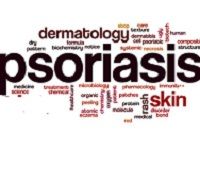Infections, Not Antibiotics Spark Pediatric Psoriasis Risk
The risk of developing psoriasis can be attributed to infections, not antibiotic use.

The risk of developing psoriasis can be attributed to infections, not antibiotic use.
Daniel B. Horton, MD, Rutgers University, and colleagues conducted a controlled case study, published in JAMA Dermatology, to investigate whether infections and exposure to antibiotics were independently associated with pediatric psoriasis.
The research team scoured electronic health records from June 27, 1994 to January 15, 2013 of patients aged 1-15 years.
The experts compared 845 children who were recently diagnosed with psoriasis to approximately 8,450 children who were randomly chosen during the psoriasis diagnosis.
Interestingly, those children randomly chosen were specifically excluded from the study if they exhibited signs of any immunodeficiency, inflammatory bowel disease (IBD), or juvenile arthritis.
According to Horton, this was imperative as “The pathogenesis of psoriasis is incompletely understood but likely involves genetic, immunologic, and environmental factors.” More recent studies have found an association between childhood antibiotic use and two related pediatric autoimmune diseases: IBD and juvenile idiopathic arthritis (JIA). Antibiotics disrupt human microbiota, and human microbial disturbance has been implicated in the pathogenesis of pediatric IBD and JIA.
Upon adjusting patient variables, the study results indicated that antibiotic exposure in the last two years was poorly linked to incident psoriasis. Furthermore, the researchers found that non-skin infections treated with either antibiotics or not treated with antibiotics were both associated with psoriasis.
“We showed there was no apparent association between antibiotics and psoriasis in children. This is no way alters the message from many other studies that antibiotics are overprescribed to children and that antibiotic use and overuse are associated with any number of unfavorable outcomes,” concluded Horton.